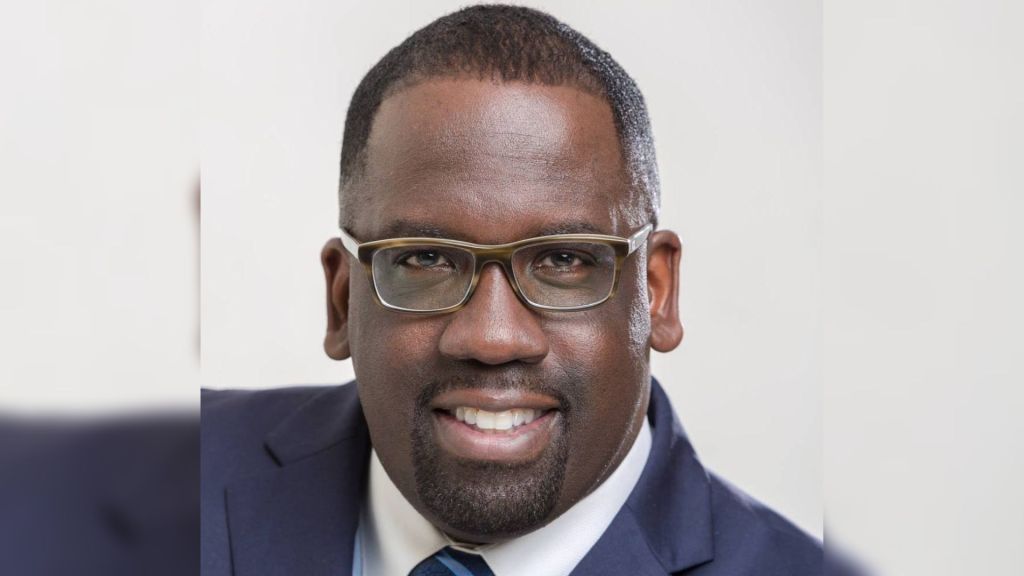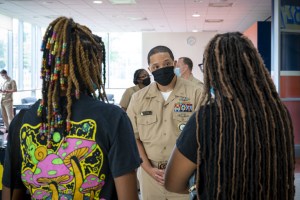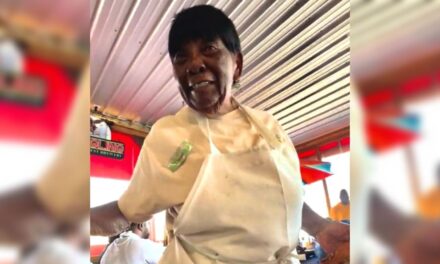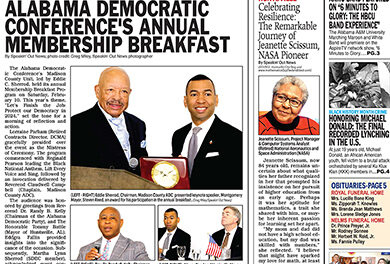By Fedrick C. Ingram
Word In Black
Florida Gov. Ron DeSantis isn’t interested in being a leader.
Leaders listen to the people, even those they don’t agree with, in order to foster democracy and empathy for the communities they’ve been elected to serve.
That is what leaders do.

Photo: Photo courtesy of the South Florida Educators Coalition
Last year, at the start of Black History Month, DeSantis blocked the country’s first AP Black Studies course for being “too woke.” This year, just in time for Black Music Month in June, DeSantis vetoed $32 million in cultural and museum grants from his state budget. He clearly wasn’t listening to the voices of his constituents, none of whom asked for such an unprecedented attack on art and culture. A principled leader wouldn’t even imagine eliminating the entire arts budget for the third largest state in the country, depriving countless communities of a vital human endeavor.
That is what autocrats do.
While slashing the entire arts budget for the state is not a legal crime, it is a moral crime. Art is one of the most important things humans create and an outlet for the frustrated and the forgotten. It can also free the soul from place and time so we can experience the sublime.
That is what art and an arts education did for me.
As I have written before, music changed the entire trajectory of my life. From a kid born in the Miami projects with a bad stutter to an accomplished leader in education, I needed art to better understand my own potential.
Learning to sing and then play an instrument before graduating boosted my self-esteem, taught me discipline and stoked my desire to master something on my own steam.
I found new heroes through arts education, too. Names like Branford Marsalis, Prince and Gerald Albright were just as big to me as Michael Jordan or Eddie Murphy. They not only showed me beauty but revealed my connection to my people’s legacy. Of course, I already knew names like Harriet Tubman, Frederick Douglass or A. Philip Randolph, but to understand the soundtrack of Black America as it strove from slavery to freedom was a new frontier. Understanding the music I was playing connected me to the triumphs of my people, made me puff out my chest a bit more and stand a bit straighter.
Studying the arts can also have tangible academic benefits as well. We know it can have a marked increase on standardized reading scores and reduce the need for teacher discipline — a big deal for Black students who are disproportionately punished for behavior in school. Students engaging with arts education had a nearly 4 percent reduction in discipline, a 13 percent increase in standardized writing scores, and an 8 percent increase in compassion for others.
The good news is that most public school children have access to arts education—whether that’s painting, music, writing or many other forms. According to a 2019 report from the Arts Education Data Project, 96% of K-12 students have access to arts education, with 65% participating.
However, that access is not guaranteed for all children, especially in Florida where public schools are being hollowed out by school vouchers at an increasing rate. So what does this mean for low-income and Black children who, according to a 2020 Knight Foundation study, “report lower levels of access to arts and cultural activities than higher-income or White residents.”
Without the arts, there are voices that will go unheard, and their attachment to the community will be diminished.
It’s hard for me to think that was not the goal.
The beauty of art, aside from the aesthetics, is that it not only comments on the status quo, but challenges it. Nina Simone, Marvin Gaye, and Public Enemy have turned art into social commentary. That commentary spawns action and activism. To undermine that endeavor feels like a calculated move from a governor who has regularly shown his disdain for dissenting voices.
This is the same governor banning books by authors whose stories and identities veer too close to some ugly truths instead of the jingoistic fantasy he has in his head. His rejection of AP Black Studies was partly due to his inability to reconcile how queer experiences related to the Black experience — has he never heard of playwright Lorraine Hansberry, author James Baldwin or dancer Alvin Ailey?
I suspect he does know who these people are — but they all made art that challenges his worldview that America is a land with no rough edges, no deep-seated conflicts that have left scars on multiple generations. He and his extremist pals prefer an America that has only done the right thing. In this way, there is no trouble — only troublemakers; anyone who dares to remind us that we still have a long road to true equality must be silenced.
To paraphrase the great John Lewis, we must remain troublemakers. Whether we do that by casting a ballot or writing a song, we must insist on searching for an imagined tomorrow to make today a better place. We must stay connected to the ones before us who inspired us through music, books, plays and movies. Let’s dance, paint, sculpt, and write our brave new future into the soil of this country so we will never forget our past or give up on our glorious future.
This article was originally published by Word In Black.
The post The fate of art and soul in Florida appeared first on AFRO American Newspapers.











